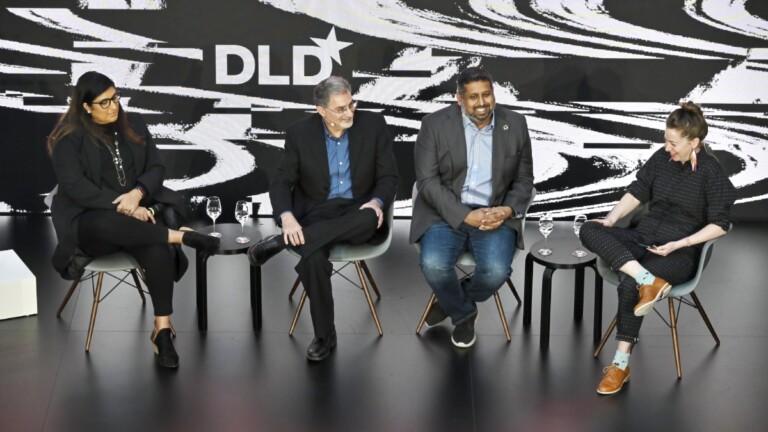
“Successful AI Means Responsible AI”
How can artificial intelligence advance humanity and benefit society as a whole? Google executive Ewa Duerr says responsible use of the technology is key.
Few companies have advanced the development of artificial intelligence quite like Google. Its research team at DeepMind in London has repeatedly made headlines with breakthroughs such as AlphaGo and AlphaFold – showing that smart algorithms can beat even the best Go players and help us crack nature’s secrets.
In this interview, Ewa Duerr, Head of Product Management for Google Cloud Artificial Intelligence, explains how the company is implementing AI in its products and why she feels that responsible use of the technology is crucial to its success.
Ewa Duerr will be sharing further insights at the DLD AI Summit on September 7, 2023, in Munich. Attendance is complimentary.
How intelligent is AI really at this point?
Machines and humans have different modes of thinking, parsing the information and inferring from it – both with their own strengths and limitations. Therefore, the relevant question is not how intelligent machines are compared to humans, but rather how we as humans can use AI to advance humanity and how we can collaborate with AI to benefit society as a whole.
What’s crucial in this respect?
Artificial intelligence is now seen as a technology that can deliver tangible business value for customers. However, there is a warning here: given AI’s increased ease of use and accessibility, we all now carry a huge responsibility to define how this technology is used and find ways to build products to enable its responsible use. Successful AI means responsible AI.
In that context, there is a clear need to ensure responsible development and ongoing governance of AI. Companies can’t just build advanced technologies and disown responsibility for how they get used. We all now have a critical role to play and need to work together as an ecosystem of technology companies, users, regulators and policy makers to set necessary boundaries for the responsible use of AI.
DLD AI Summit 2023
This event was an exploration of the boundless potential of artificial intelligence on September 7, 2023, in Munich. Revisit the AI Summit 2023 for expert insights into the transformative power of AI, as this revolutionary technology is going to affect every industry, society and science itself.
How does Google itself use AI?
At Google, AI is in our DNA. For two decades, we have leveraged the power of AI to organize the world’s information and make it useful to people and businesses everywhere. From advancing our Search algorithm with AI, to sharpening content recommendations on YouTube with unsupervised learning – we have constantly leveraged AI to solve some of the toughest challenges in the market.
We have also deeply ingrained AI into our internal processes. In fact, many of the products or features that we put to the market, we first try ourselves internally within Google – from Google Maps, YouTube, Gmail to even our products for companies built by Google Cloud. We call this process “dogfooding”. This gives us the first opportunity to see how the products we build are used by thousands of Googlers and enhance them before we put them in the hands of millions of users externally.
What insights have you gained from this “dogfooding” process?
The most important lesson I learned is that dealing with transformational technologies such as AI requires a “cultural change” on how the products are deployed and used. Therefore, the tech companies need to work with educational institutions, governments and industry as a whole to promote ethical and responsible use of AI by consumers and organizations.
Everyone needs to be aware of checks and balances, risk and threats of AI misuse – not only engineers, developers and product managers. As an ecosystem and society, we have the responsibility to manage cultural change and institutionalize human oversight to avoid biases, ensure accountability, security as well as respect privacy and safety.
As a trained violin player, are you excited that generative AI systems can now compose music?
Technology advancements have always gone hand in hand in fostering human creativity – including composition and music. The invention of the “Stradivari” violin is seen as a technology milestone in music as it has continued to inspire composers and musicians throughout centuries. The appearance of electronic music as a new “technology” definitely brought new trends in pop, rock, jazz, etc.
In a similar manner, AI – whether it is transfer learning or generative AI systems – is yet another trigger in history, allowing us to become more creative, set new trends and interact with the technology in innovative and immersive manners.
What I am personally very excited about is how (generative) AI can foster creativity in a multi-disciplinary and multi-modal way. The next era of AI could allow us to create immersive experiences that span across audio, text, video, images. In that context, I am excited about the new generation of artists using AI to augment human creativity and take it to the next level.







